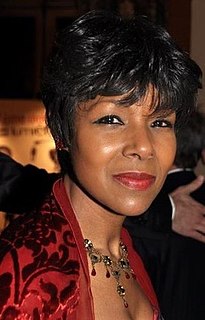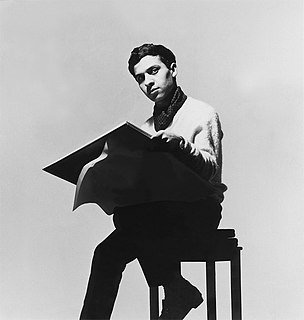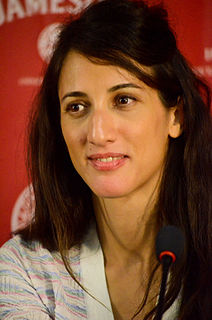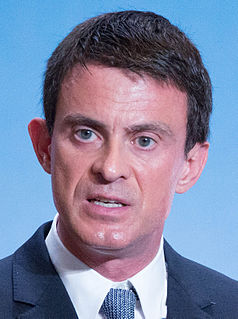A Quote by Manuel Puig
In a country like France, so ancient, their history is full of outstanding people, so they carry a heavy weight on their back. Who could write in French after Proust or Flaubert?
Related Quotes
Whether you like it or not, France's history is unique in Europe. Not to put too fine a point on it, France is a country of regicidal monarchists. It is a paradox: The French want to elect a king, but they would like to be able to overthrow him whenever they want. The office of president is not a normal office - that is something one should understand when one occupies it. You have to be prepared to be disparaged, insulted and mocked - that is in the French nature.
My film is actually very critical of the level of French we're using back home. To have an immigrant from an ancient French colony come and do that is a little critical of our education system back home. Balzac is definitely over their heads. It's meant to be funny also because it would be also probably too much for kids in France, but kids in France would know who Balzac is. But, back home at that age, I guarantee you they don't know who he is.
It may be that what you could be haunts you. It is real. It is a weight you have to carry around. Each failure to become, to be, is a weight. Each state you could inhabit is a burden as heavy as any physical weight, but more so, because it weighs on your soul. It is the ghost of your possibilities hanging around your neck, an invisible albatros, potentials unknowingly murdered.
The Second World War had a precipitating effect in that it discredited the empires, as well as bankrupting them. Not only could you no longer, if you were a colonial subject of France in Africa, look to France as a model of power and influence and civility after what had happened in the war. Nor could the French any longer afford to run their empire. And nor could the British, although they were not discredited in the way that the French were.
When African-Americans come to France, the French show them more consideration than they would show an African or a Black Caribbean. When African-Americans come to France, the French people are like, 'Oh, wow. Oh my God.' But if it's an African, they're like, 'Whatever.' It's all because of the past, because of our history.
I live in New York now, and miss France quite a bit. Of course, the reality of living in a small village in the south of France was very different than the fantasy I had of living in France. Over the years I spent there, that fantasy was worn away and I found a more realistic version of France than the one I began with. I wouldn't say the spell ever goes away, but transforms. Now that I understand French culture more intimately, and speak fluent French, I have a different, more solid, relationship to the country.
There was never a choice to sing in English or French, that's the thing. We started a band and sang right away in English. You reproduce the thing you like, and most of the bands we liked were coming from England or the U.S. We also came to cherish the fact that there was no one in France singing in English -we were so happy Phoenix to be the first. Even if we are traitors to France, our country, which I'll never understand, because we talk about things that are very French.
It is one of the many merits of this admirable biography of Proust's mother that it invites one to return to the novel with perhaps a fuller understanding of Proust's heredity, hinterland, and upbringing. . . . This fascinating book is full of interesting social and cultural observation, of information about French Jewish life, the position of Jews in society and, of course, the Dreyfus case. But it is essentially a study of one of the most remarkable and fruitful of mother-son relationships. As such it is a book that every Proustian will want to read.



































